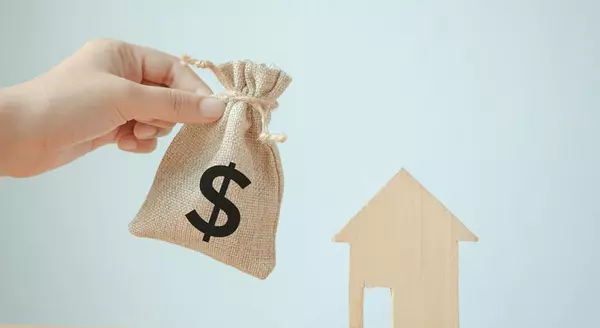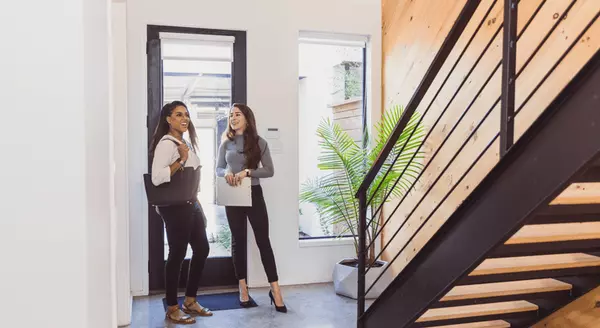
How To Determine if You’re Ready To Buy a Home
If you’re trying to decide if you’re ready to buy a home in Oklahoma, there’s probably a lot on your mind. You’re thinking about your finances, today’s mortgage rates and home prices, the limited supply of homes for sale, and more. And, you’re juggling how all of those things will impact the choice you’ll make. While housing market conditions are definitely a factor in your decision, your own personal situation and your finances matter too. As an article from NerdWallet says: “Housing market trends give important context. But whether this is a good time to buy a house also depends on your financial situation, life goals and readiness to become a homeowner.” Instead of trying to time the market, focus on what you can control. Here are a few questions that can give you clarity on whether you’re ready to make your move. 1. Do You Have a Stable Job? One thing to consider is how stable you feel your employment is. Buying a home is a big purchase, and you’re going to sign a home loan stating you’ll pay that loan back. That's a big commitment. Knowing you have a reliable job and a steady stream of income coming in can help put your mind at ease when making such a large purchase. 2. Have You Figured Out What You Can Afford? If you have reliable paychecks coming in, the next thing to figure out is what you can afford. That’ll depend on your spending habits, debt, and more. To be sure you have a good idea of what to expect from a number's perspective, start by talking to a trusted lender. They’ll be able to tell you about the pre-approval process and what you’re qualified to borrow, current mortgage rates and your approximate monthly payment, closing costs to anticipate, and other expenses you’ll want to budget for. That way you can make an informed decision about whether you’re ready to buy. 3. Do You Have an Emergency Fund? Another key factor is whether you’ll have enough cash left over in case of an emergency. While that’s not fun to think about, it’s an important thing to consider. You don’t want to overextend on the house, and then not be able to weather a storm if one comes along. As CNET says: “You’ll want to have a financial cushion that can cover several months of living expenses, including mortgage payments, in case of unforeseen circumstances, such as job loss or medical emergencies.” 4. How Long Do You Plan To Live There? It was mentioned above, but buying a home involves some upfront expenses. And while you’ll get that money back (and more) as you gain equity, that process takes time. If you plan to move too soon, you may not recoup your investment. For example, if you’re looking to sell and move again in a year, it might not make sense to buy right now. As Lawrence Yun, Chief Economist at the National Association of Realtors (NAR), explains: “Five years is a good, comfortable mark. If the price of your home appreciates considerably, then even three years would be fine.” So, think about your future. If you plan to transfer to a new city with the upcoming promotion you’re working toward or you anticipate your loved ones will need you to move closer to take care of them, that’s something to factor in. 5. Above all else, the most important question to answer is: do you have a team of real estate professionals in place? If not, finding a trusted local agent and a lender is a good first step. The pros can talk you through your options and help you decide if you’re ready to take the plunge or if you have a few more things to get in order first. Bottom Line If you want to have a conversation about all the things you need to consider to determine if you’re ready to buy, connect with a local real estate professional.

Why Moving to a Smaller Home After Retirement Makes Life Easier
Retirement is a time for relaxation, adventure, and enjoying the things you love. As you imagine this exciting new chapter in your life, it's important to think about whether your current home still fits your needs. If it's too big, too costly, or just not convenient anymore, downsizing might help you make the most of your retirement years. To find out if a smaller, more manageable home might be the perfect fit for your new lifestyle, ask yourself these questions: Do the original reasons I bought my current house still stand, or have my needs changed since then? Do I really need and want the space I have right now, or could somewhere smaller be a better fit? What are my housing expenses right now, and how much do I want to try to save by downsizing? If you answered yes to any of these, consider the benefits that come with downsizing. The Benefits of Moving into a Smaller Home There are many reasons why you should downsize. Here are just a few from Bankrate: Your Equity Can Help Make Downsizing Possible If those perks sound like something you’d want, you may already have what you need to make it happen. A recent article from Seniors Guide shares: “And at a time when homeowners age 62 and older have more than $12 trillion in home equity, downsizing makes sense . . .” If you’ve been in your Oklahoma house for a while, odds are you’re one of those homeowners who’s built up a considerable amount of equity. And that equity is something you can use to help you buy a home that better fits your needs today. Greg McBride, Chief Financial Analyst at Bankrate, explains: “Downsizing can mean taking that equity when the home is sold and using it to pay cash or make a large down payment on a lower-priced home, reducing your monthly living expenses.” When you’re ready to use all that equity to fuel your next move, your real estate agent will be your guide through every step of the process. That includes setting the right price for your current house when you sell, finding the home that best fits your evolving needs, and understanding what you can afford at today’s mortgage rate. Bottom Line Starting your retirement journey? Think about downsizing – it could really help. When you're ready, talk to a local real estate agent about your housing goals this year.

Homeowners Gained $28K in Equity over the Past Year
If you own a home, your net worth has probably gone up a lot over the past year. Oklahoma home prices have been rising, which means you're building equity much faster than you might think. Here’s how it works. Equity is the current value of your home minus what you owe on the loan. Over the past year, there have still been more people wanting to buy than there are homes available for sale, and that’s pushed prices up. That rise in prices has translated directly into increasing equity for homeowners. How Much Equity Have You Earned over the Past 12 Months? According to the latest Homeowner Equity Insights from CoreLogic, the average homeowner's equity has grown by $28,000 in the last year alone. That's the national average, so if you want to see what's happening in your state, check out the map below. It uses data from CoreLogic to show how much equity has grown in each state over the past year. You’ll notice every single state with sufficient data saw annual equity gains: What If You Bought Your House Before the Pandemic? If you bought your house before the pandemic, the equity news is even better. According to data from Realtor.com, home prices shot up by 37.5% from May 2019 to May 2024, meaning your home's value has likely increased significantly. Ralph McLaughlin, Senior Economist at Realtor.com, says: “Homeowners have seen extraordinary gains in home equity over the past five years.” To give context to how much equity can stack up over time, Selma Hepp, Chief Economist at CoreLogic, explains the total equity the typical homeowner has today: “With home prices continuing to reach new highs, owners are also seeing their equity approach the historic peaks of 2023, close to a total of $305,000 per owner.” How Your Rising Home Equity Can Help You With how prices skyrocketed a few years ago, and the ongoing price growth today, Oklahoma homeowners clearly have substantial equity built up – and that has some serious benefits. You could use it to start a business, fund an education, or even to help you afford your next home. When you sell, the equity you’ve built up comes back to you, and may be enough to cover a big part – or even all – of your next home’s down payment. Bottom Line If you're planning to move, the equity you've gained can really help. Curious about how much you have and how you can use it to help pay for your next home? Connect with a local real estate agent.
Categories
Recent Posts










